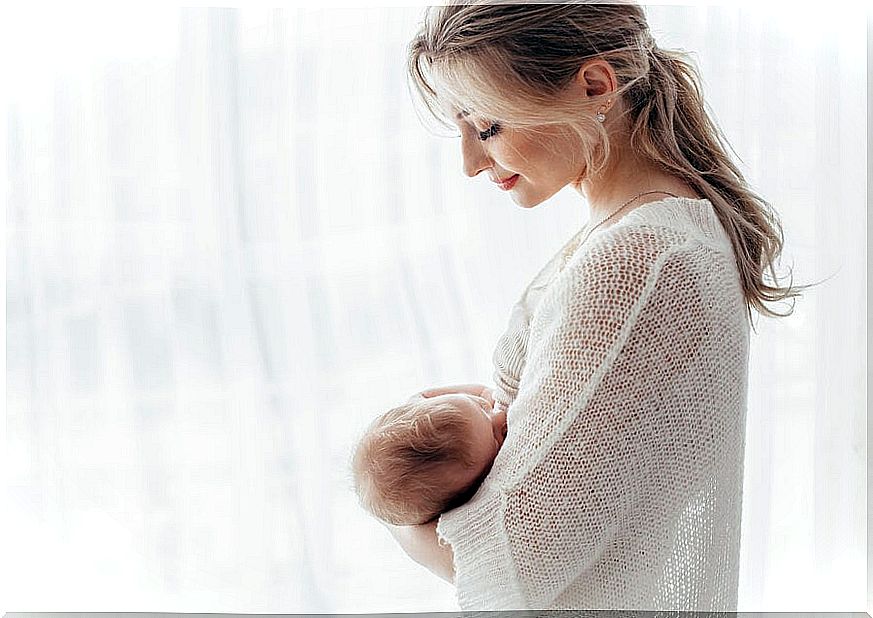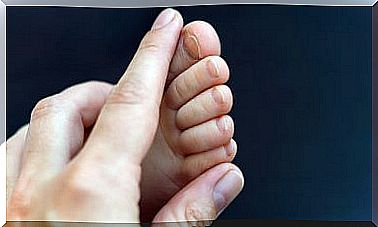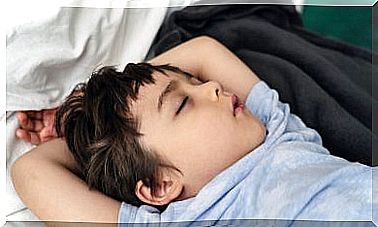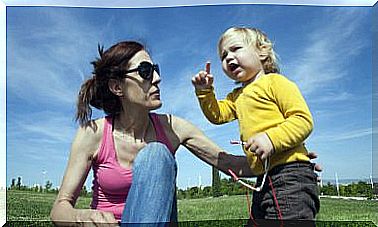Highly Sensitive Mothers

Around 20% of the planet’s population falls within the group called ‘highly sensitive people’ (PAS). People diagnosed with PAS have a series of characteristics linked to brain function that make them more susceptible to what happens in their environment.
Since the PAS diagnosis was scientifically proven, many people have come to better understand themselves and their family. Highly sensitive mothers are very likely to pass this trait on to their sons and daughters.
Among the characteristics of a highly sensitive person is the ability to intensely perceive the surrounding stimuli. They are also capable of processing more information and faster at the brain level. Both characteristics make highly sensitive people need to isolate themselves.
Overstimulation causes an overwhelming sensation that the brain is not able to digest at the moment. On the other hand, this high sensitivity makes these people supportive, empathetic and with the habit of putting themselves in the shoes of the other permanently.
How the environment affects highly sensitive mothers
Highly sensitive women who come to motherhood will encounter various obstacles to living both pregnancy and childbirth according to their desire and sensitivity.
In many cases, in a society in which everything related to the feminine is infantilized, commodified and denigrated, the highly sensitive woman becomes an easy target for macho attitudes. These attitudes can come from doctors, gynecologists, obstetricians, nurses, health institutions, family and husband; that is to say, of all its surroundings.
Patriarchy corners the highly sensitive mother. It imposes rules, ways of giving birth, caring for and feeding the baby. In opposition to this, some highly sensitive women may be informed about feminism, be feminists, or simply not get sucked into the unequal networks of society.

Other mothers, faced with the difficulty of setting limits to the impositions of the environment, take these records as true and suffer greatly from the entire process of birth and the first months of their child’s life.
Added to this is the romanticization of motherhood. It is assumed that, since the mother sees her child for the first time, life will be a bed of roses. This is far from true, and any mother knows it.
Highly sensitive mothers who intend to live motherhood according to this story soon find themselves faced with a wall of silence and loneliness. A completely dependent and defenseless being depends on them, and they just want to be hugged and stopped by the world for a few hours to understand what is happening.
Sensations of highly sensitive mothers in motherhood
These are some feelings that very sensitive mothers experience when faced with the different episodes of motherhood:
1. Lack of alone time
Highly sensitive mothers have suddenly lost their much loved intimacy. Nobody warned them or thought that it would be so painful to stop having a space of their own, a personal refuge. Even with the baby sleeping in the room, the mother will feel that she has lost something very valuable, an inherent part of herself.
2. Greater contact with the family
Before having children, PAS mothers perhaps saw little of their relatives, every fifteen or twenty days. With the arrival of the baby, the presence of the family will be much more fluid. A highly sensitive woman will not live with much pleasure and comfort the massive influx of relatives.
3. Changes in the partner
There are alterations that are usually negative. For example, couples are almost forced to put off intimacy. On the other hand, even when the child was planned and desired in advance, there are often differences when it comes to parenting. This, for a highly sensitive mother, can be overwhelming.
4. The social ideology of the perfect mother
Society requires mothers not to shout too much, not to overprotect, not to buy too many toys, to consume the latest on the market; and so with all aspects of this phase of life.
Highly sensitive mothers often collapse under pressure and social demands. The saddest thing is that this society is completely absent when mothers need support.

Positive aspects of being highly sensitive mothers
In these circumstances, the important thing is to become aware of your own feelings. In this way, motherhood can be fully enjoyed and children will receive all the love they need.
One of its greatest advantages is that, in a natural way, a PAS mother will feel great empathy for her children, which will make it easier to help them in certain growth processes. The love of art, sensitivity to life, cognitive and language development are invaluable gifts that highly sensitive mothers pass on to their little ones.
For all this, women who go through their motherhood with a PAS diagnosis can feel happy and reassured that they will be able to carry out a loving upbringing. Working on yourself is essential to know your own desires, intuitions and limits.










